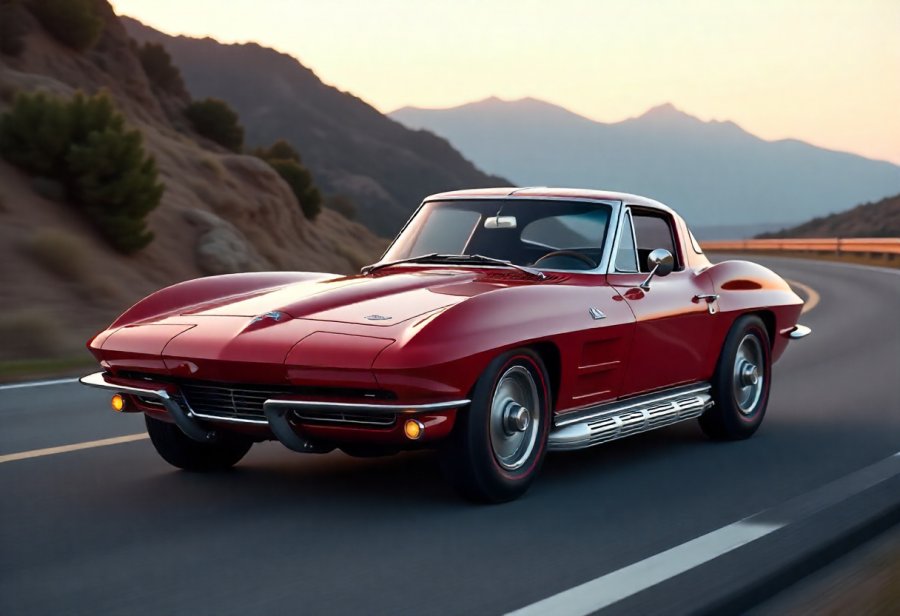Christopher Columbus’s 1492 voyage is often celebrated as a daring milestone in human history, yet beneath the tales of discovery lies a complex story fueled equally by ambition and greed. Born in Genoa, Columbus’s relentless quest for fame, wealth, and glory propelled him into uncharted waters, risking everything for a shorter route to Asia. His landing in the Caribbean marked the beginning of profound global change—opening pathways for exploration, exchange, and colonization. But at what cost? His brutal treatment of indigenous populations, the spread of devastating diseases, and the subsequent cultural destruction cast a shadow over his legacy. Today, the narrative is shifting: Columbus is increasingly seen as both an explorer and a symbol of conquest, prompting debates about history, memory, and justice. Will future perspectives continue to illuminate the nuanced truth behind his voyage, or will reevaluations reshape how we honor the past?
Ambition and Discovery: The Bold Voyage of Columbus
Christopher Columbus’s voyage in 1492 is often remembered as a daring expedition that changed the course of history. Behind the familiar story of discovery, however, lies a tale driven by ambition as much as curiosity. Columbus wasn’t simply seeking new lands; he was fueled by personal dreams of fame, wealth, and the desire to bring glory to Spain. These motivations pushed him to venture into uncharted waters, risking everything in pursuit of a shorter route to Asia and the promise of riches. His journey marked the beginning of a new era, where exploration became intertwined with expansion and opportunity.
Born in Genoa, Italy, Columbus’s early life was shaped by a fascination with maps, navigation, and the sea. Growing up in a modest family, he devoured books on geography and dreamed of discovering new worlds. His practical sailing experience along Mediterranean coasts and West Africa laid the groundwork for his bold vision: to find a western route to Asia. Despite widespread skepticism, Columbus believed that the world was smaller and more connected than most thought, convinced that a voyage westward could lead him to the riches of the East.
After years of rejection by Portugal and England, Columbus finally gained support from Spain’s monarchs, Queen Isabella and King Ferdinand. In 1492, he set sail from Palos de la Frontera with three ships—the Santa María, Pinta, and Niña—entering waters largely unknown to Europeans. Weeks at sea were filled with storms and mounting doubts among his crew, who questioned whether they were sailing off the edge of the world. Yet Columbus remained resolute, convinced that land was near. When land finally appeared on October 12, he believed he had found Asia’s outskirts, but in reality, he had stumbled upon a new continent entirely.
Columbus’s discovery of the Caribbean islands ignited a wave of exploration and colonization that would forever alter the world. His voyages opened the door to European settlement and resource extraction across the Americas, fueling a complex legacy of cultural exchange and conflict. While his journeys sparked economic growth and global interconnectedness, they also initiated centuries of violence, displacement, and suffering for indigenous peoples—consequences driven by ambition as much as by exploration.
Columbus’s story remains a powerful symbol of human curiosity and daring, yet it also prompts reflection on the costs of ambition. His voyage was more than an accidental discovery; it was a testament to the relentless drive to push boundaries and reshape the world. As we look back, his journey reminds us that exploration is often fueled by dreams, but those dreams can come with profound and lasting consequences.
Pursuit of Wealth and Opportunity: The Background That Fueled Exploration
In the years leading up to Columbus’s voyage, Europe was a continent eager for new trade routes, wealth, and territorial expansion. Countries like Spain, Portugal, England, and France were racing to claim influence and riches, driven by the desire to access the lucrative markets of Asia—spices, silk, gold—that had long sparked European ambitions. Overland routes through the Middle East were long, dangerous, and costly, making Western ocean crossings an appealing alternative. The Atlantic, once considered a vast and unknowable barrier, became a focal point for explorers seeking shorter, safer passages to the East.
Economically, this period was marked by a fierce push to break free from expensive and risky trade networks. The Portuguese had begun establishing sea routes around Africa, threatening to monopolize trade with Asia and control the flow of valuable goods. Meanwhile, the Renaissance’s surge of curiosity and innovation fueled advances in navigation, cartography, and shipbuilding, making daring voyages increasingly feasible. These technological and scientific strides encouraged Europeans to look beyond familiar waters and aim for new horizons, seeing exploration as both a means of wealth and a way to enhance national prestige.
Columbus’s background played a key role in shaping his ambitions. Born in Genoa around 1451 into a modest family, he was captivated by maps and the idea of discovery from a young age. His early sailing along the Mediterranean coast exposed him to practical skills and sparked a relentless curiosity about the world’s geography. Over time, Columbus became convinced that a westward route to Asia could exist—an idea inspired by the works of ancient geographers like Ptolemy. Despite widespread skepticism from peers, he pressed on, driven by the belief that the globe was smaller and more interconnected than most assumed.
After years of rejection by Portugal and England, Columbus finally found support in Spain’s Catholic Monarchs, Queen Isabella and King Ferdinand. Their backing in 1492 was motivated by the hope that his voyage would expand Spain’s influence, open new markets, and bring wealth through the promise of Asian riches. With three ships—the Santa María, Pinta, and Niña—he set sail from Palos de la Frontera into an uncharted Atlantic, facing the uncertainties of long weeks at sea and the crew’s growing doubts about whether land would be found at all.
The Atlantic crossing was perilous and filled with tension. The crew feared the vast, unexplored ocean, and some questioned Columbus’s navigation. Storms, dwindling supplies, and mounting fears about sailing off the edge of the world tested their resolve. Yet Columbus remained unwavering, convinced that land was near. When land finally appeared on October 12, 1492, he believed he had reached Asia’s outskirts, unaware that he had stumbled upon a completely new continent. This moment marked the beginning of a new chapter in history, driven by European rivalry, economic ambitions, and the unrelenting drive to explore the unknown.
A Legacy of Change and Controversy: The Long Shadow of Columbus’s Journeys
Columbus’s voyages ushered in a wave of profound and lasting change that reshaped world history. His expeditions not only opened new territories for European settlement but also triggered a cascade of economic, cultural, and ecological transformations. The Columbian Exchange, which began shortly after his first landing, dramatically altered diets worldwide by introducing crops like potatoes and maize to Europe and wheat and sugar to the Americas. Animals such as horses and cattle also crossed continents, transforming indigenous ways of life and ecosystems alike. While these exchanges fostered growth and interconnectedness, they also brought unintended consequences, including the spread of diseases that decimated native populations.
The impact on indigenous peoples was immediate and devastating. Columbus’s arrival marked the start of violent conquest, with settlers imposing systems like the encomienda, which exploited native labor and resources. Diseases such as smallpox, measles, and influenza spread rapidly, wiping out entire communities unimmune to these new threats. Forced labor, violence, and displacement became commonplace as Europeans sought to control land and wealth, often disregarding native cultures and sovereignty. These brutal practices initiated centuries of suffering, cultural suppression, and demographic decline among indigenous societies.
Columbus’s treatment of native populations remains a central point of controversy. His actions—marked by violence, exploitation, and forced conversions—embody the darker side of European expansion. While he is credited with connecting distant worlds and sparking global trade, his legacy also symbolizes conquest and cultural destruction. Today, debates around his role are fierce; many argue that honoring him glosses over the suffering inflicted on native peoples, prompting calls for reassessment of historical narratives and symbols associated with him.
The long-term effects of Columbus’s voyages extended beyond immediate colonization. European dominance in the Americas reshaped global power structures, fueling imperial ambitions and economic rivalries. Native resistance persisted, and indigenous communities fought to preserve their identities and ways of life amid colonization’s relentless pressures. Recognition of these struggles has grown, leading to a more nuanced understanding of Columbus’s legacy—one that balances admiration for exploration with acknowledgment of the violence and dispossession that accompanied it.
Today, the story of Columbus continues to influence how we interpret exploration and history. His voyages symbolize both human curiosity and ambition, but also serve as a reminder of the costs of expansion. Movements to remove statues, rename holidays, and elevate indigenous voices reflect a broader effort to tell a complete, honest story. Embracing these diverse perspectives helps foster a more inclusive understanding of exploration’s legacy—one that recognizes the achievements while confronting the injustices intertwined with Columbus’s journey.
Understanding the full scope of Columbus’s impact requires examining how his voyages continue to shape contemporary debates about history and memory. For those interested in exploring the broader implications of his legacy, learning more about the history and perspectives surrounding Columbus can be enlightening. You can find additional insights at here.
Reflecting on the Past: Columbus’s Impact on Modern Identity and History
Columbus’s story continues to shape how we understand history and identity today. Once celebrated as a daring explorer who unlocked new worlds, his legacy now prompts a more nuanced conversation about the true costs of discovery. To many, Columbus symbolizes European ingenuity and the bold spirit of exploration that helped create a connected, globalized world. His voyages initiated the Columbian Exchange, transforming diets, economies, and cultural exchanges across continents. These achievements are undeniable and have played a key role in shaping modern society.
However, growing awareness of the darker side of colonization has shifted perspectives. Indigenous communities and advocates highlight the violence, displacement, and cultural destruction that followed Columbus’s arrival. The stories of massacres, forced labor, and the devastating spread of diseases are now central to understanding his true impact. This awareness challenges traditional hero narratives and urges society to acknowledge both the achievements and the suffering intertwined with exploration.
Public symbols and holidays reflect this changing view. Statues of Columbus have become focal points for debate, with many calling for their removal or replacement. The holiday once known as Columbus Day is increasingly being renamed or replaced to honor Native American history and resilience. These actions aim to acknowledge the full scope of history—celebrating human curiosity while recognizing the pain caused to indigenous peoples.
Listening to indigenous voices plays a vital role in this reevaluation. Their perspectives emphasize resilience and cultural survival amid centuries of colonization. Recognizing these narratives fosters a more inclusive understanding of history—one that values diverse experiences and moves beyond simplified stories of heroism. This broadens our perspective and helps build empathy for communities affected by colonization’s legacy.
This ongoing reflection influences how societies commemorate the past. It’s about understanding history in its complexity rather than erasing it. Memorials and celebrations are scrutinized through the lens of responsibility and respect, encouraging us to think critically about what stories we choose to uphold. Embracing multiple viewpoints helps create a more honest and compassionate narrative that respects both achievement and suffering.
As scholarship and activism grow, perceptions of Columbus will continue to evolve. More archives are being uncovered, and indigenous histories are gaining prominence, challenging traditional glorification. These voices remind us that exploration and expansion often came at a profound human cost—an essential consideration as we chart a responsible future. Reflecting on this complex legacy pushes us to balance curiosity with justice, ensuring history guides us toward greater understanding.
Ultimately, Columbus’s story is a mirror for how societies define progress and justice. It compels us to confront uncomfortable truths while inspiring responsible exploration. Acknowledging both the achievements and the atrocities associated with his voyages encourages us to learn from the past. This ongoing dialogue shapes not only how history is remembered but also how we move forward—aiming for a future rooted in respect, inclusion, and a fuller understanding of human endeavors.
Shaping the Future: Lessons and Legacies of Columbus’s Exploration
Columbus’s story continues to influence how we understand exploration and shape the course of global history today. As new research and diverse perspectives emerge, the narrative around his voyages shifts from simple heroism to a complex story that includes the lasting impacts on indigenous peoples, ecosystems, and cultural identities. This evolving view calls us to reflect on the true costs of discovery and the responsibilities that come with venturing into the unknown.
Future scholarship is likely to deepen our understanding of Columbus by highlighting the ongoing consequences of colonization. Advances in archaeology and interdisciplinary studies reveal how European expansion disrupted societies and environments, emphasizing the resilience of indigenous communities. These stories challenge the traditional glorification of Columbus and push us to see exploration as a double-edged sword—one that brought progress but also profound suffering.
The way societies commemorate exploration is also transforming. Many communities are reexamining statues, holidays, and symbols that honor Columbus, often replacing or renaming them to better reflect a fuller, more honest history. This isn’t about erasing the past but acknowledging its darker chapters—recognizing pain and displacement while still valuing human curiosity and drive. It’s a move toward inclusivity that respects multiple narratives and experiences.
Including indigenous voices in these conversations is crucial. Their perspectives highlight resilience and cultural revival amid centuries of oppression. By listening to these stories, we foster a more nuanced understanding that respects both the achievements of exploration and the injustices it often entailed. This broader view promotes empathy and a more responsible approach to history—one that recognizes the complexity behind every discovery.
Looking ahead, reinterpretations of Columbus’s role will likely become more sophisticated as new evidence and activism continue to grow. Indigenous histories are gaining prominence, challenging old myths and inspiring a reevaluation of exploration’s true impact. These shifts encourage us to ask tough questions about ethics, justice, and the legacy we want to uphold for future generations.
The lessons from Columbus’s story remind us that exploration is intertwined with both progress and consequence. Recognizing the full scope of his legacy encourages a balanced perspective—celebrating human curiosity while acknowledging the harm caused. This awareness guides us to pursue future ventures with greater responsibility, respecting communities and ecosystems alike.
In the end, Columbus’s journey serves as a mirror for our values and priorities. It pushes us to confront uncomfortable truths and to forge a path that values respect, inclusion, and accountability. As history continues to be rewritten, this ongoing reflection shapes not only how we remember the past but also how we build a more just and thoughtful future.







